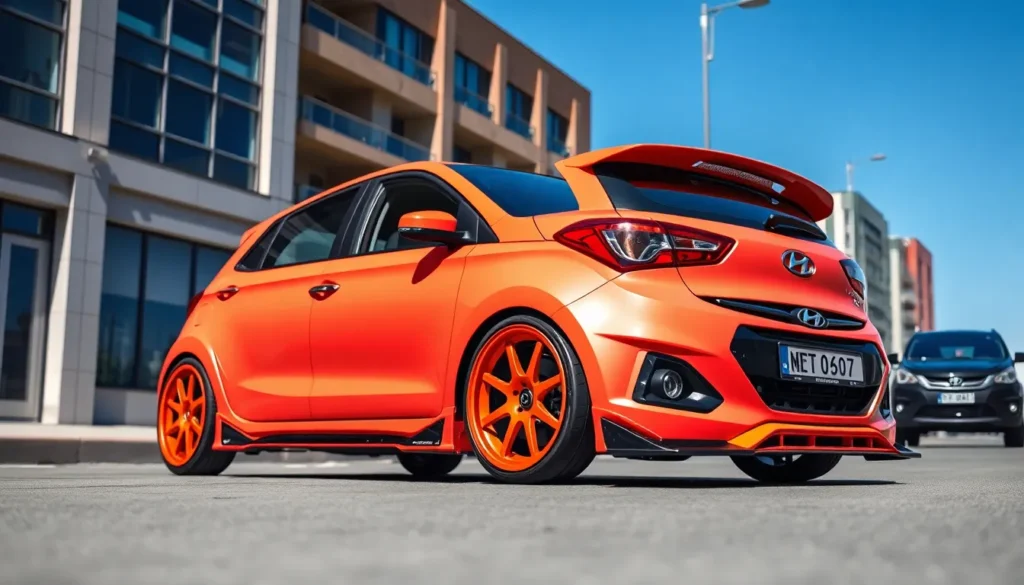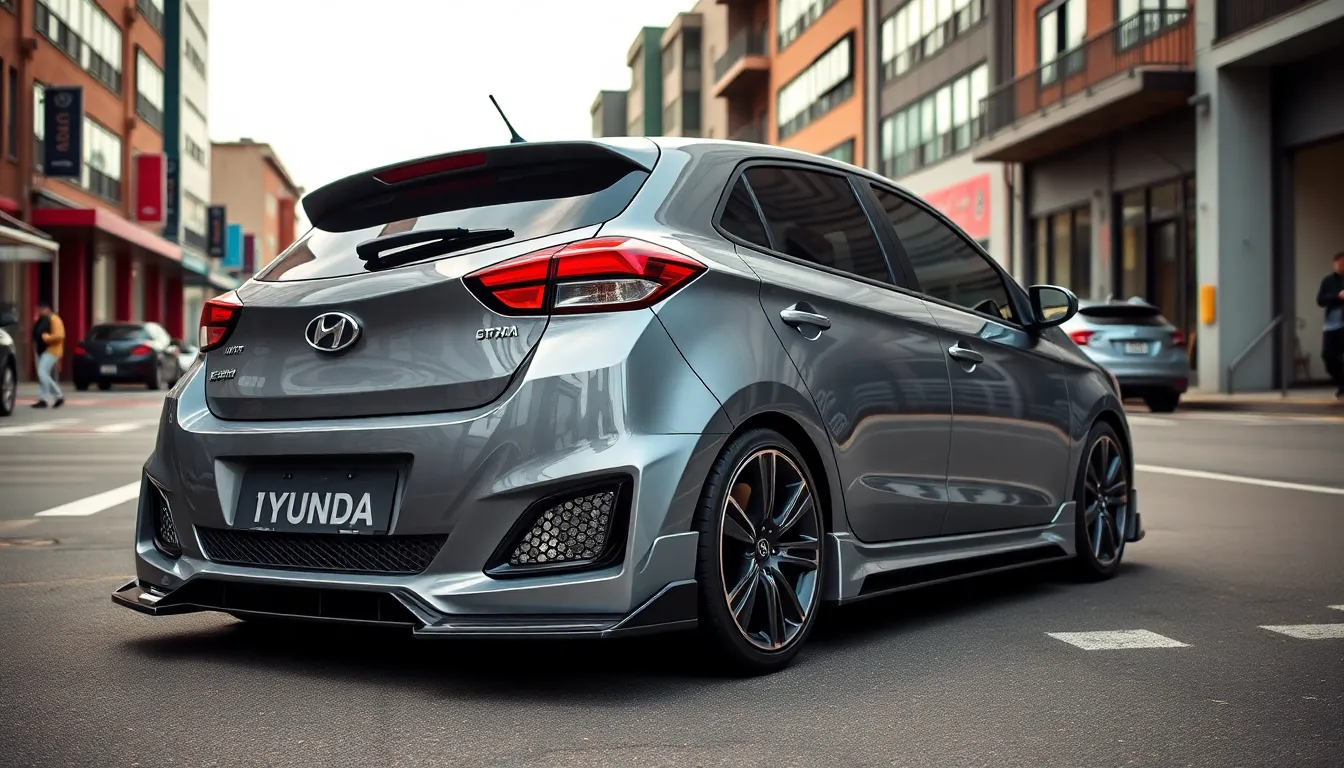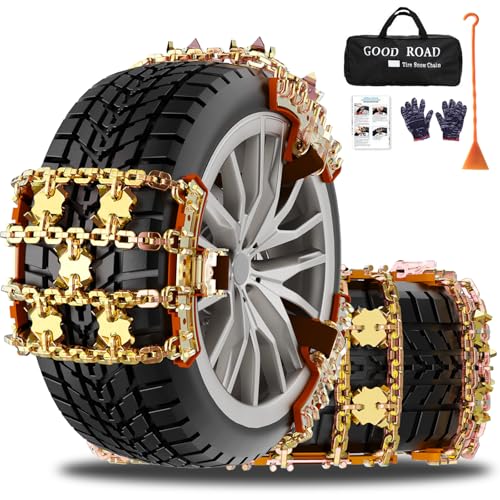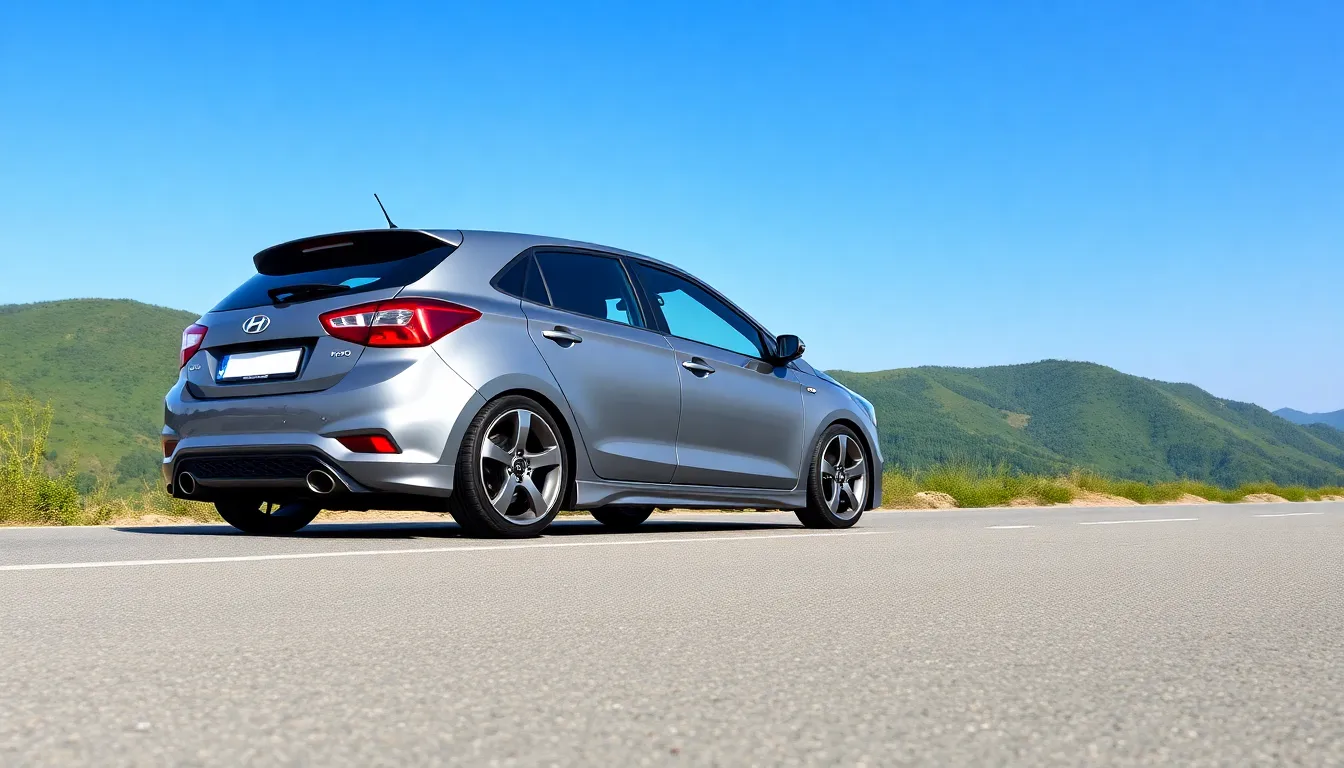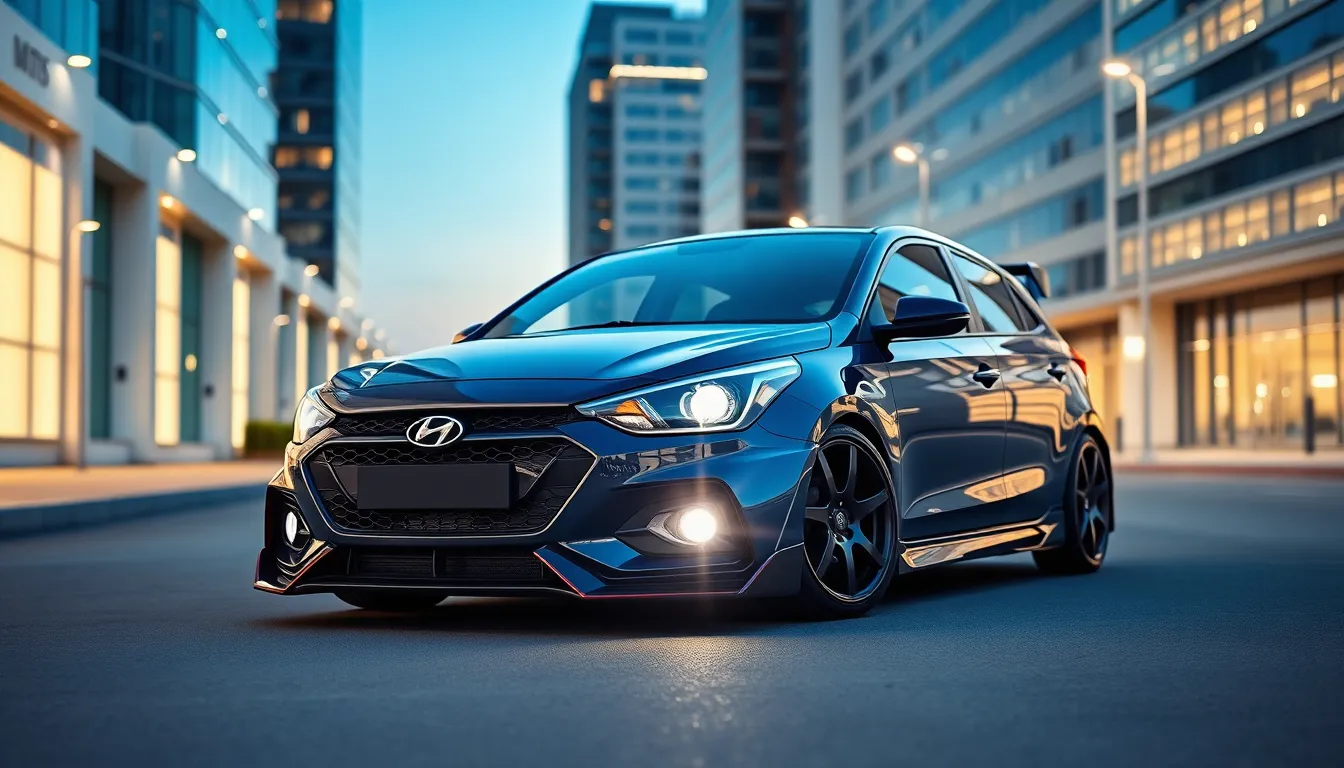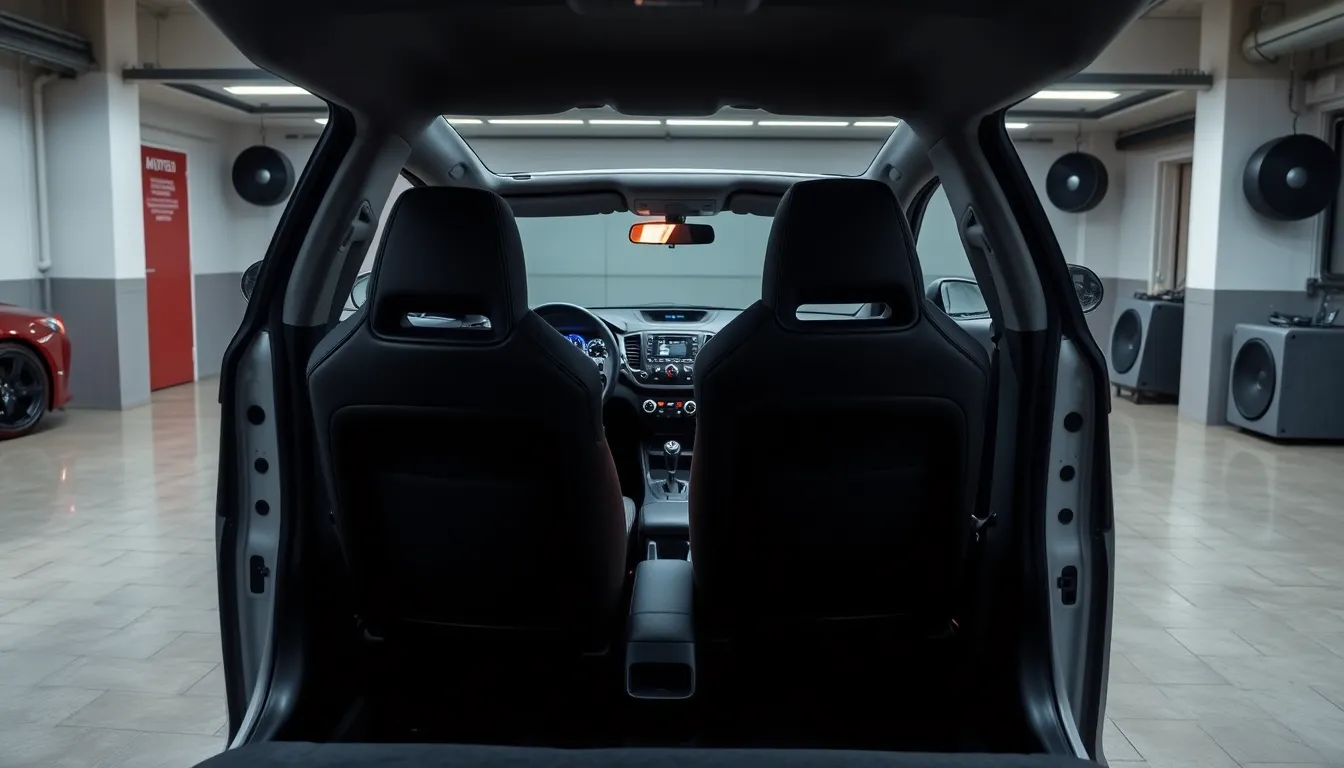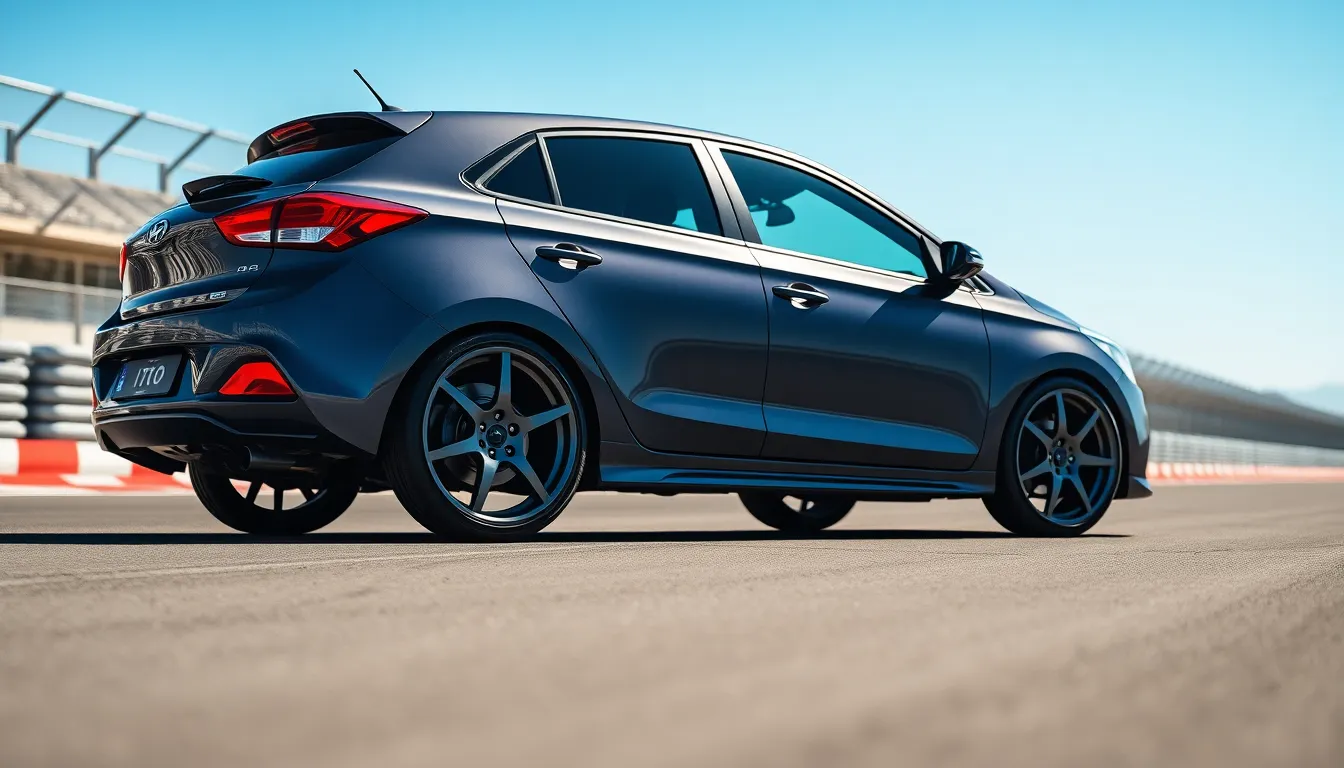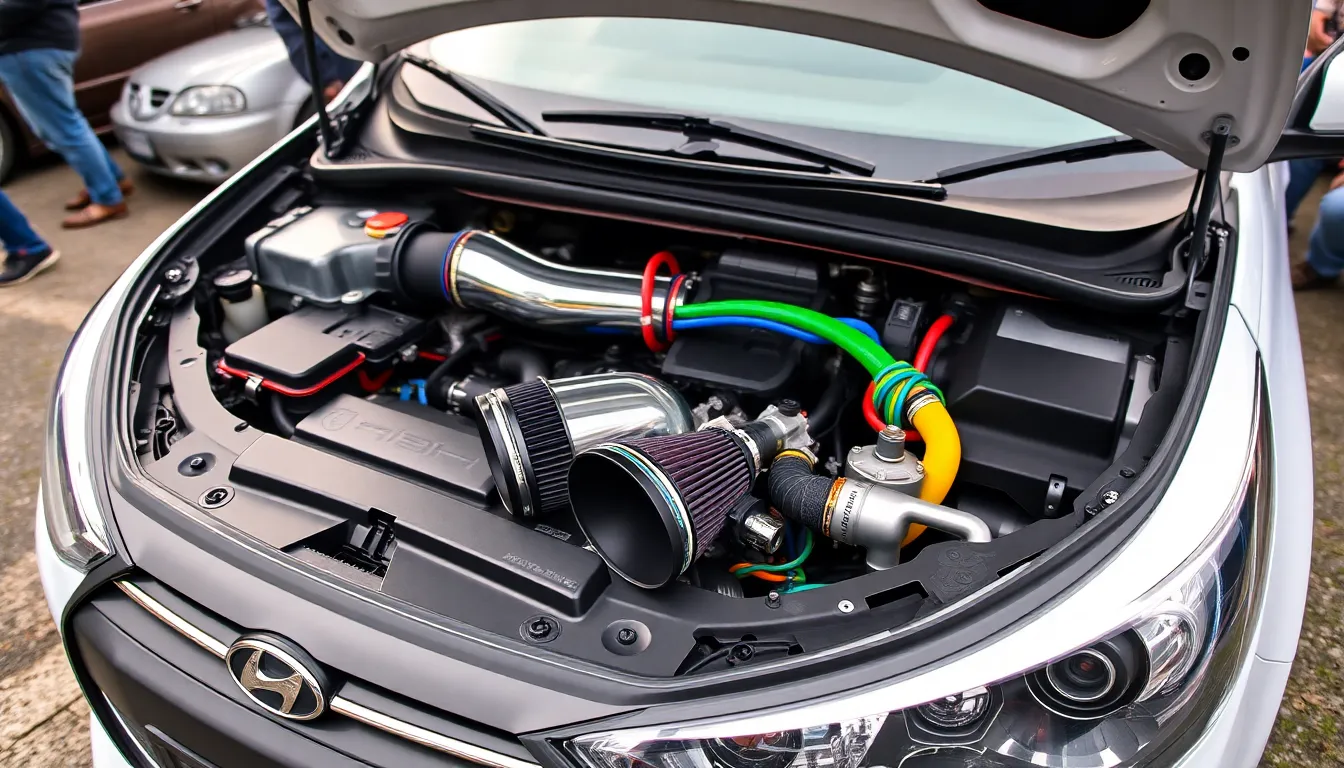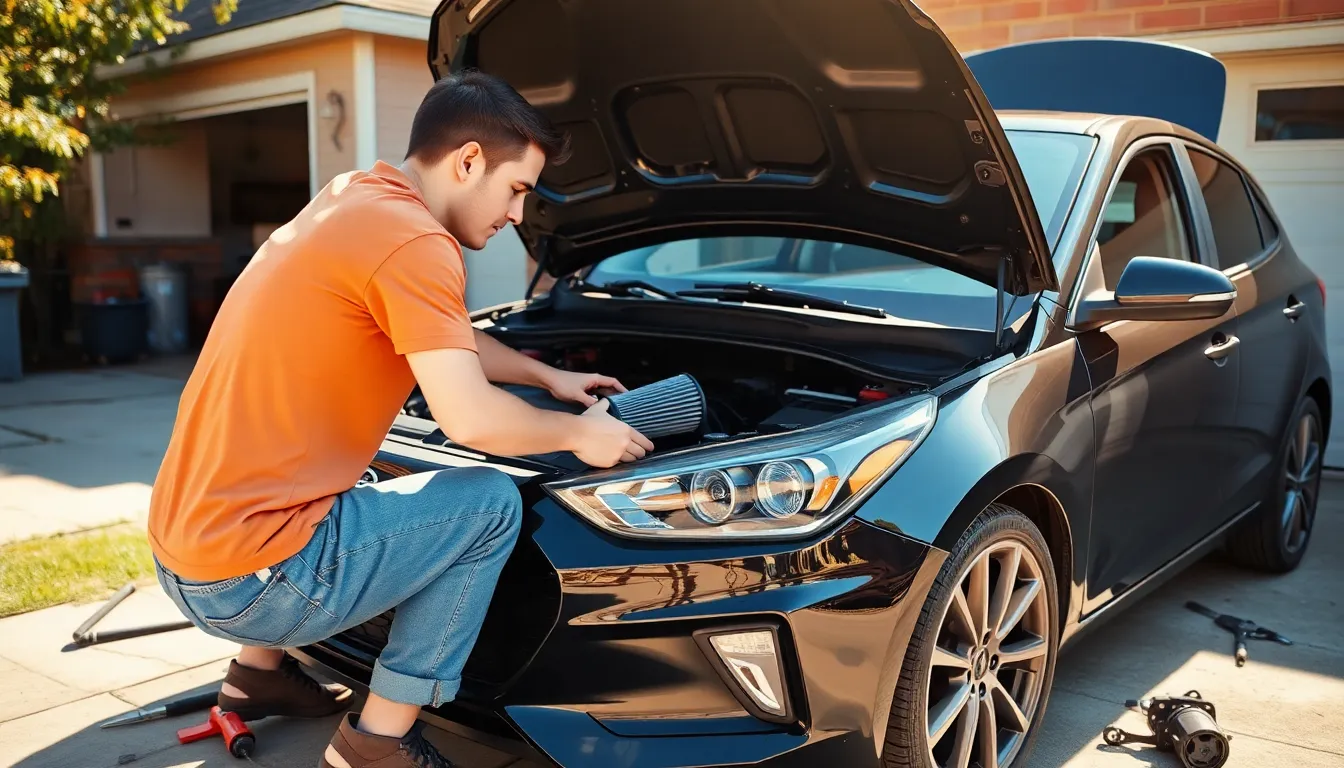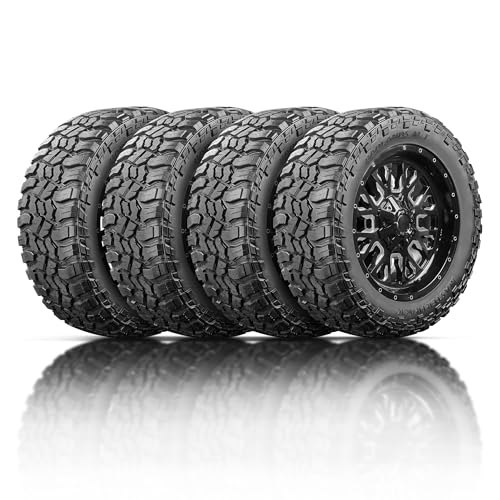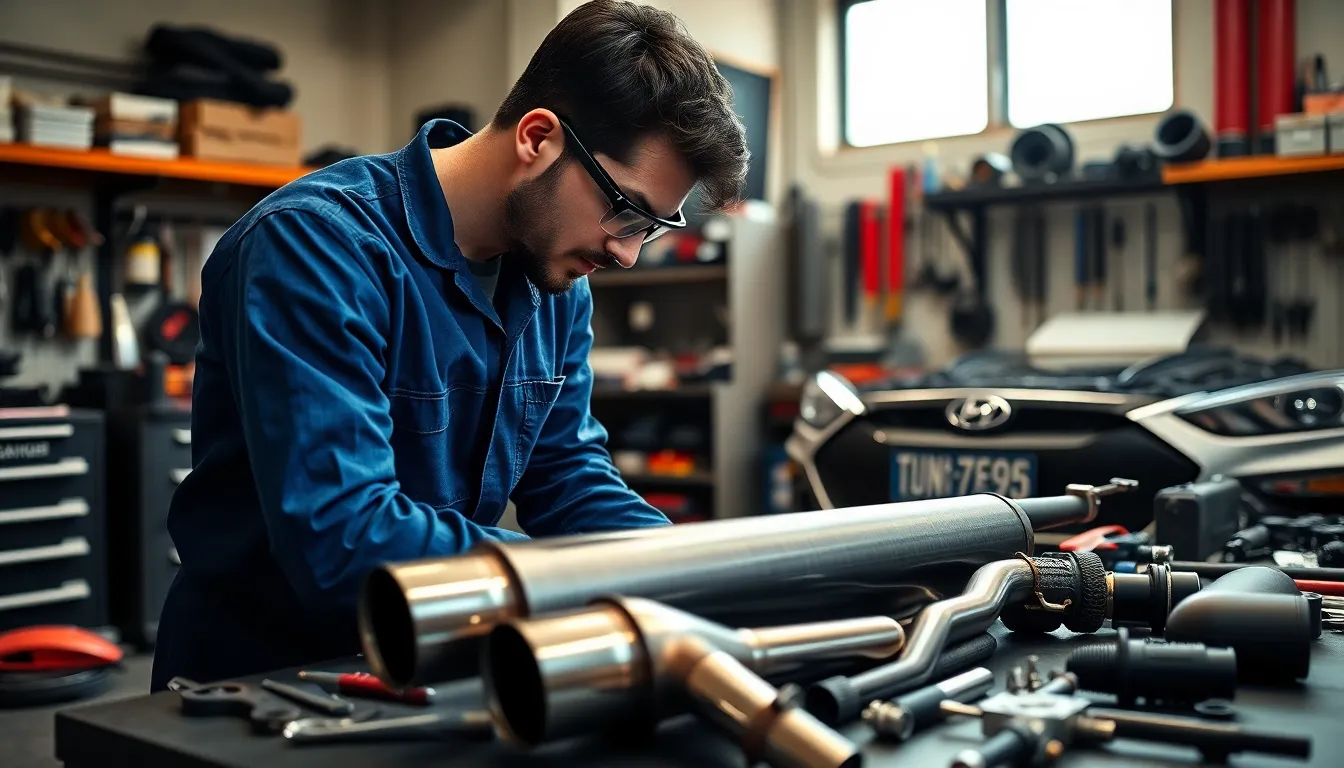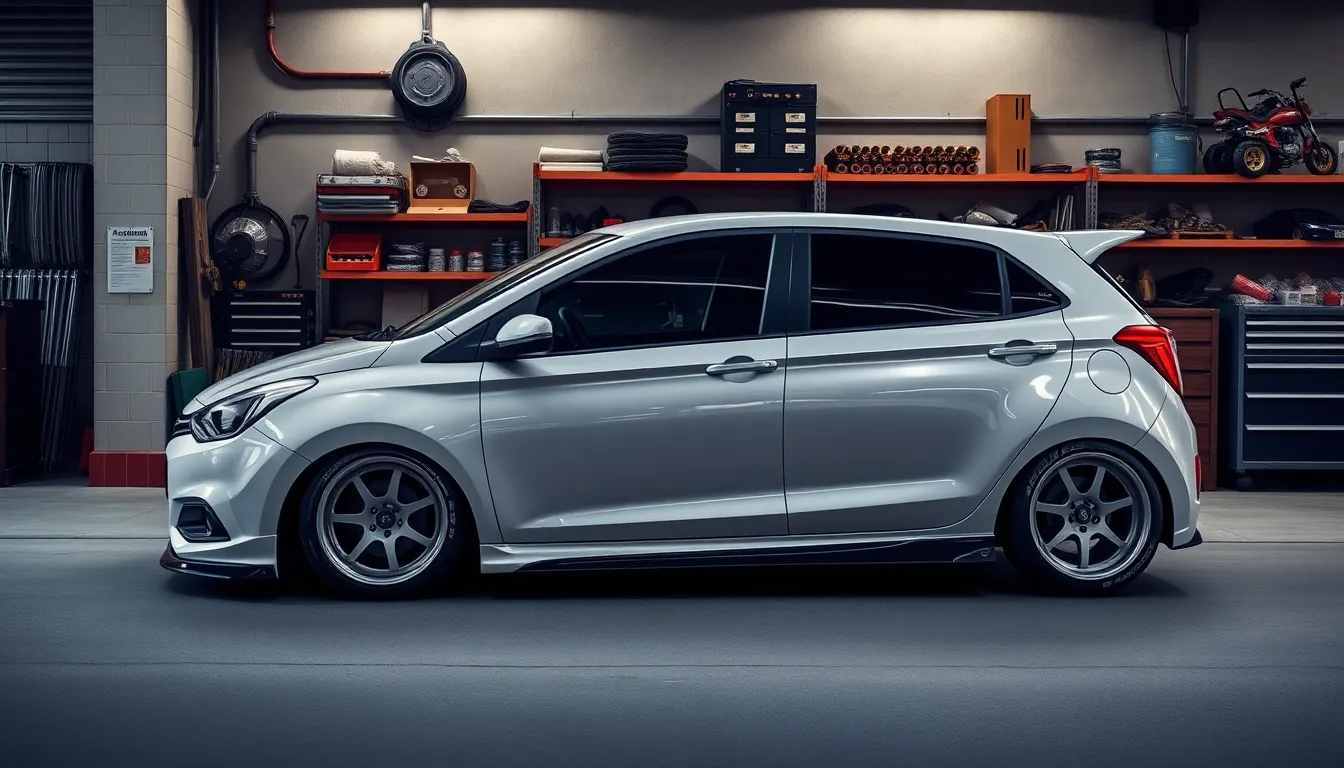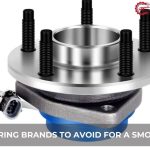The Hyundai i20 has evolved from a simple compact car into a modification enthusiast’s dream. We’ve watched countless owners transform their stock i20s into head-turning street machines that perfectly blend style with performance. Whether you’re drawn to subtle aesthetic upgrades or comprehensive engine modifications this versatile hatchback offers endless possibilities for customization.
Modified Hyundai i20s dominate car meets and online forums for good reason. We’ve seen everything from lowered suspension setups and custom body kits to turbocharger installations that dramatically boost power output. The i20’s affordable price point and robust platform make it an ideal canvas for both beginner modifiers and seasoned tuning professionals.
From exterior styling modifications to performance-focused engine upgrades we’ll explore the most popular and effective ways to transform your i20. You’ll discover proven modification paths that deliver maximum impact while maintaining reliability and everyday usability.
Understanding the Hyundai i20 Platform for Modifications
The Hyundai i20’s robust construction provides an excellent foundation for various modification projects. We’ve analyzed countless builds to understand what makes this compact car particularly suitable for customization work.
Base Model Specifications and Features
The i20 platform offers several generations with distinct characteristics for modification enthusiasts. First-generation models (2008-2014) feature a wheelbase of 2,525mm and curb weight ranging from 1,050kg to 1,200kg depending on the variant. Second-generation i20s (2014-2020) increased the wheelbase to 2,570mm while maintaining similar weight distribution properties.
Standard features across most i20 variants include MacPherson strut front suspension and torsion beam rear setup. We find this configuration responds well to lowering springs and coilover installations. The 15-inch or 16-inch wheel wells accommodate larger wheel and tire combinations without extensive fender modifications.
Interior space remains practical even after modifications thanks to the 2+3 seating layout and 295-liter boot capacity. Most owners appreciate how the dashboard design accepts aftermarket stereo systems and gauges without major cutting or fabrication work.
Engine Options and Performance Potential
Hyundai equipped the i20 with multiple engine configurations that offer different modification pathways. The 1.2-liter Kappa engine produces 83hp in stock form but responds well to intake and exhaust modifications. We’ve seen builds achieve 95-100hp with basic bolt-on upgrades like cold air intakes and performance exhausts.
The 1.4-liter diesel variant delivers 90hp and 224Nm of torque from the factory. ECU remapping typically increases output to 110-115hp and 260-280Nm without internal engine modifications. This engine handles moderate power increases reliably when paired with upgraded intercoolers and exhaust systems.
Turbocharged variants like the i20 N Line and i20 N offer the highest performance potential. The 1.0-liter T-GDI produces 120hp while the N model generates 204hp. These engines accept stage 1 tunes that can increase power by 15-25% with supporting modifications like upgraded fuel pumps and intercoolers.
Common Modification Categories
Aesthetic modifications form the most popular category among i20 owners. Body kits, spoilers, and side skirts transform the exterior appearance while maintaining the car’s practical nature. Wheel upgrades typically range from 16-inch to 18-inch diameter with offset adjustments to improve stance and handling.
Performance upgrades focus on engine, suspension, and braking improvements. Cold air intakes, performance exhausts, and ECU tuning represent the most common engine modifications. Coilover suspension systems and performance brake pads address handling and stopping power needs.
Interior customizations include racing seats, steering wheels, and gauge clusters for a sportier cabin environment. Sound system upgrades remain popular with component speakers, amplifiers, and subwoofers fitting easily into the i20’s interior space. LED lighting conversions for both interior and exterior provide modern styling updates.
Safety and reliability modifications ensure modified i20s remain dependable daily drivers. Upgraded cooling systems, transmission coolers, and reinforced engine mounts support increased performance levels while maintaining long-term durability.
Essential Performance Modifications for Your i20 Hyundai Modified Build
Performance modifications transform your i20 from a capable daily driver into a genuine enthusiast machine. We’ll explore the most effective upgrades that deliver measurable power gains while maintaining reliability.
Engine Tuning and ECU Remapping Options
Engine tuning represents the most cost-effective way to unlock your i20’s hidden performance potential. ECU remapping can increase power output by 15-25% on naturally aspirated engines and up to 40% on turbocharged variants like the i20 N Line. Professional tuning services typically charge $300-800 for stage 1 remaps that optimize fuel delivery, ignition timing, and boost pressure.
Stage 1 tunes focus on software modifications without hardware changes, making them perfect for warranty-conscious owners. These remaps improve throttle response and eliminate factory power restrictions while maintaining safe operating parameters. Stage 2 tuning requires supporting modifications like upgraded intakes and exhausts but delivers significantly more power gains.
Custom dyno tuning provides the best results for heavily modified i20s, allowing tuners to optimize every aspect of engine management. Popular tuning companies like Revo, APR, and local specialists offer proven maps specifically developed for i20 platforms. We recommend starting with stage 1 software before investing in expensive hardware modifications.
Cold Air Intake and Exhaust System Upgrades
Cold air intake systems improve engine breathing by replacing restrictive factory airboxes with high-flow alternatives. Quality intake kits from K&N, Injen, or AEM typically add 5-12 horsepower while improving engine sound. These systems draw cooler air from outside the engine bay, increasing air density and combustion efficiency.
Exhaust system upgrades provide both performance and aesthetic benefits for your modified i20 build. Cat-back exhaust systems from brands like Milltek, Borla, or custom fabricators reduce backpressure and create an aggressive exhaust note. Full turbo-back systems on N Line models can add 15-20 horsepower when combined with ECU tuning.
Performance headers replace restrictive factory manifolds to improve exhaust flow from the combustion chambers. These modifications work synergistically with intake upgrades, creating a complete breathing package that maximizes naturally aspirated performance. Stainless steel construction ensures durability while maintaining optimal flow characteristics.
High-flow catalytic converters bridge the gap between performance and emissions compliance. These units flow better than stock cats while still passing most emissions tests, making them ideal for street-driven modified i20s.
Turbocharger and Supercharger Installations
Turbocharger upgrades offer the most dramatic power increases for serious i20 modified builds. Factory turbocharged i20 N models benefit from larger turbo installations that can double stock power output with supporting modifications. Garrett, Precision Turbo, and Hybrid turbos provide reliable options for different power goals.
Turbo kit installations on naturally aspirated i20 engines require extensive modifications including custom piping, intercoolers, and fuel system upgrades. Complete turbo kits cost $3,000-8,000 depending on target power levels and component quality. Professional installation ensures proper fitment and reliability.
Supercharger systems provide instant throttle response without turbo lag, making them attractive for street performance applications. Centrifugal superchargers from Vortech or Rotrex mount easily in i20 engine bays and deliver linear power delivery throughout the rev range.
Supporting modifications become critical with forced induction installations. Upgraded fuel injectors, high-pressure fuel pumps, and intercoolers ensure safe operation at increased power levels. Internal engine components may require strengthening for power levels exceeding 250 horsepower.
Boost controllers allow fine-tuning of turbo or supercharger output to match driving conditions and fuel quality. Electronic boost controllers provide precise control while manual units offer simplicity and reliability for budget builds.
Suspension and Handling Upgrades for Enhanced Driving Experience
Transforming your i20’s suspension system unlocks a completely different driving experience that complements the engine modifications we’ve explored. These upgrades enhance cornering ability, reduce body roll, and provide the responsive handling that enthusiasts crave.
Lowering Springs and Coilover Systems
Lowering springs represent the most affordable entry point into suspension modification for your i20. Eibach Pro-Kit springs drop the car 25-35mm while maintaining daily drivability, offering improved handling without sacrificing comfort. Vogtland springs provide similar performance with German engineering precision, typically costing $200-300 for a complete set.
Coilover systems deliver the ultimate in suspension customization for serious i20 modifiers. Bilstein B14 coilovers allow height adjustment from 20-50mm lower than stock while providing 10-position damping adjustment for fine-tuning. BC Racing BR coilovers offer excellent value at $800-1200, featuring 30-way adjustable damping and the ability to corner-balance your i20. KW Variant 3 coilovers represent the premium option at $2000-2500, providing motorsport-derived technology with separate compression and rebound adjustment.
Installation considerations require professional alignment after any suspension changes to maximize tire life and handling benefits. We recommend upgrading to adjustable camber bolts or camber plates when lowering more than 30mm to maintain proper suspension geometry.
Strut Braces and Chassis Reinforcement
Front strut tower braces significantly improve chassis rigidity in your modified i20 by connecting the suspension mounting points. Cusco front strut braces reduce flex during aggressive cornering, maintaining consistent suspension geometry when pushing the limits. Whiteline adjustable strut braces allow fine-tuning of chassis balance while providing structural benefits.
Rear strut braces work along with front braces to create a more balanced handling platform. These modifications prevent the rear suspension towers from flexing under load, particularly beneficial when combined with lowered springs or coilovers. Lower tie bars connect the bottom of the rear suspension to further reduce unwanted movement.
Subframe braces tie together multiple chassis points to create exceptional rigidity gains. Ultra Racing offers complete brace kits that include front lower, rear lower, and side braces for comprehensive chassis stiffening. These modifications become increasingly important as power levels increase, ensuring that your i20’s handling remains predictable at higher performance levels.
Performance Tires and Wheel Combinations
Wheel sizing dramatically affects your i20’s handling characteristics and visual appeal. Moving from the stock 15″ or 16″ wheels to 17″ or 18″ options reduces sidewall flex while accommodating wider performance tires. Popular sizes include 17×7.5″ and 18×8″ wheels that maintain proper load ratings while improving aesthetics.
Tire selection becomes critical for maximizing the benefits of suspension modifications. Michelin Pilot Sport 4 tires provide excellent grip in both dry and wet conditions, perfectly complementing lowered i20s. Continental ExtremeContact Sport tires offer motorsport-derived compounds at competitive prices. For track-focused builds, Toyo Proxes R888R tires deliver maximum grip but sacrifice daily usability.
Wheel and tire packages should consider the following specifications:
| Wheel Size | Tire Size | Benefits | Considerations |
|---|---|---|---|
| 17×7.5″ | 215/40R17 | Improved handling, reasonable comfort | Moderate performance gain |
| 17×8″ | 225/45R17 | Better grip, aggressive stance | Slightly harsher ride |
| 18×8″ | 215/35R18 | Maximum performance, sharp steering | Reduced comfort, higher cost |
Weight considerations play a crucial role in performance gains from wheel upgrades. Lightweight forged wheels from brands like Enkei RPF1 or Advan Racing reduce unsprung weight by 3-5 pounds per corner, improving acceleration, braking, and suspension response. These modifications work synergistically with the engine performance upgrades we’ve discussed to create a truly transformed i20.
Exterior Styling Modifications That Transform Your i20’s Appearance
Building on the performance foundation we’ve established, exterior modifications create the visual impact that truly sets your i20 apart from stock models.
Body Kit Options and Aerodynamic Enhancements
Full body kits represent the most dramatic transformation option for i20 owners seeking comprehensive styling changes. Brands like Ings+1 and Mugen offer complete packages that include front bumpers, side skirts, and rear diffusers specifically designed for the i20’s dimensions. These kits typically cost between $800-2,500 depending on material quality and brand reputation.
Front splitters enhance the aggressive appearance while providing functional downforce at higher speeds. Carbon fiber options from companies like APR Performance add approximately 15-20 pounds of downforce at 60 mph, improving high speed stability. Installation requires precise fitment to maintain proper ground clearance without compromising daily drivability.
Side skirts create a lower, more athletic profile that visually connects the front and rear styling elements. Factory style extensions blend seamlessly with the i20’s existing lines, while aggressive aftermarket options like those from Rieger Tuning create a more dramatic appearance. Professional installation ensures proper alignment with door panels and prevents potential damage during low speed maneuvers.
Rear spoilers and diffusers complete the aerodynamic package while adding visual weight to the i20’s rear end. Duck tail spoilers provide subtle enhancement, while larger wing style options create maximum visual impact. Functional diffusers channel airflow effectively, reducing lift and improving stability during spirited driving sessions.
Custom Paint Jobs and Vinyl Wraps
Matte finish conversions transform the i20’s appearance through sophisticated color depth that catches light differently than traditional gloss finishes. Popular choices include matte black, gunmetal gray, and military green options that cost approximately $2,000-4,000 for professional application. Maintenance requires specialized products to preserve the finish quality over time.
Color changing wraps offer reversible transformation options that preserve the original paint underneath. 3M and Avery Dennison provide premium vinyl materials in over 100 color combinations, including chrome, satin, and textured finishes. Professional installation typically requires 3-5 days and costs between $1,500-3,500 depending on complexity and material selection.
Racing stripe packages add classic motorsport aesthetics without overwhelming the i20’s proportions. Center mounted stripes emphasize the car’s length, while offset designs create ever-changing visual movement. Reflective materials enhance visibility while maintaining the sporty appearance during both day and night conditions.
Custom graphic designs allow personal expression through unique artwork, logos, or patterns exact to individual preferences. Digital printing technology enables photo realistic imagery, geometric patterns, or abstract designs that integrate seamlessly with the i20’s body lines. Professional designers ensure graphics complement the car’s proportions rather than competing with existing styling elements.
LED Lighting and Headlight Upgrades
LED headlight conversions dramatically improve both appearance and functionality compared to standard halogen units. Brands like Morimoto and Retrofit Source offer plug and play answers that increase light output by 200-300% while drawing less electrical power. Installation requires approximately 2-4 hours and provides immediate visual transformation of the i20’s front end character.
Angel eye halos create distinctive ring lighting that establishes unique nighttime identity. Available in white, blue, and amber colors, these accent lights integrate with existing headlight housings through professional modification. RGB color changing options allow customization to match different moods or events while maintaining street legal compliance.
Sequential turn signals add modern luxury car features to the i20’s lighting system through flowing animation patterns. LED strip integration requires wiring modifications and programming to achieve smooth sequential operation. Professional installation ensures proper timing and prevents electrical system conflicts with other modifications.
Underglow lighting systems provide dramatic ground illumination that showcases the i20’s modified stance and wheel selections. Quality systems like those from Oracle Lighting offer smartphone app control for color selection and pattern customization. Many jurisdictions restrict certain colors for street use, making research essential before installation to avoid legal complications.
Interior Customization Ideas for a Personalized Cabin Experience
Transforming your i20’s interior creates the perfect complement to exterior styling modifications. We’ll explore proven upgrades that enhance both comfort and aesthetics for a truly personalized driving environment.
Sport Seat Installations and Upholstery Changes
Racing-inspired bucket seats deliver the ultimate combination of support and style for your modified i20. Recaro Sportster CS and Bride Zeta III seats provide exceptional lateral support during spirited driving while adding an authentic motorsport aesthetic to your cabin. These seats typically feature adjustable side bolsters and integrated headrests that reduce fatigue during long drives.
Custom leather upholstery transforms the entire cabin atmosphere with premium materials and personalized stitching patterns. Alcantara inserts on seat centers create a grippy surface that prevents sliding during cornering, while contrasting stitching in colors like red, blue, or yellow adds visual interest. Professional installation ensures durability and maintains the seats’ structural integrity.
Heated seat conversions add luxury functionality to your sport seat upgrade, particularly valuable for year-round driving comfort. Universal heating element kits integrate seamlessly with aftermarket seats and connect to the existing electrical system through the OBD port or direct wiring. Temperature controls can be mounted discretely in the center console or integrated into custom switch panels.
Seat rail modifications accommodate different driver sizes and improve the driving position for enhanced control. Adjustable rails from brands like Sparco and OMP allow for precise positioning adjustments while maintaining crash safety standards. Some installations require custom brackets specifically designed for the i20’s floor pan configuration.
Custom Dashboard and Trim Modifications
Carbon fiber dash kits instantly elevate the interior’s visual appeal while maintaining the factory layout and functionality. 3D-molded pieces from companies like Revel GT cover key areas including the center console, air vents, and door handles without permanent modifications. Real carbon fiber weave patterns create depth and reflect light differently than printed alternatives.
Custom gauge clusters provide enhanced monitoring capabilities essential for modified engines and suspension systems. Digital displays from AEM and Innovate Motorsports integrate boost pressure, air-fuel ratio, and exhaust gas temperature readings directly into your line of sight. Programmable warning lights alert you to critical parameters before damage occurs.
Illuminated trim pieces add ambient lighting that enhances nighttime driving aesthetics without compromising visibility. LED strip installations behind translucent trim create even light distribution, while fiber optic systems offer precise color control and dimming capabilities. Switch controls integrate with the existing interior lighting circuit for seamless operation.
Custom center console designs accommodate aftermarket components while improving ergonomics and storage. Fabricated consoles can house additional gauges, switches for modified systems, and phone charging stations. Upholstered surfaces match the seat materials for a cohesive interior theme.
Audio System and Infotainment Upgrades
High-performance speaker systems transform your i20’s audio quality with components designed for automotive environments. Component sets from Focal and Morel deliver crisp highs and detailed midrange through separate tweeters and woofers. Custom enclosures optimize bass response while maintaining cargo space functionality.
Amplifier installations provide the clean power necessary to drive premium speakers at their full potential. Class D amplifiers from Alpine and JL Audio offer excellent efficiency and compact mounting options behind seats or in spare tire wells. Proper power and ground wiring prevents interference with engine management systems.
Subwoofer integration adds the low-frequency impact that enhances both music and engine sound appreciation. Sealed enclosures maintain tight, accurate bass response ideal for the i20’s cabin volume, while ported designs maximize output for those preferring maximum impact. Active subwoofers simplify installation with built-in amplification.
Android Auto and Apple CarPlay retrofits bring modern connectivity to older i20 models through aftermarket head unit installations. Pioneer and Kenwood units maintain steering wheel controls and backup camera functionality while adding navigation, streaming music, and hands-free calling. Custom dash kits ensure factory-like appearance and fit.
Sound deadening applications reduce road noise and improve audio clarity through strategic material placement. Dynamat and Second Skin products applied to door panels, floor areas, and wheel wells create a quieter cabin that allows you to hear subtle audio details and engine modifications more clearly.
Popular Wheel and Tire Combinations for Modified i20 Builds
Choosing the right wheels and tires transforms both the appearance and performance characteristics of your modified i20. We’ve compiled the most effective combinations that complement the suspension and performance upgrades discussed earlier.
Alloy Wheel Size and Offset Considerations
17-inch wheels represent the sweet spot for most modified i20 builds, offering the perfect balance between performance and ride quality. Standard sizes like 17×7 or 17×7.5 with +45 to +50 offset maintain proper fender clearance while accommodating wider tires. These dimensions work exceptionally well with coilover systems and lowering springs without requiring fender modifications.
18-inch setups suit more aggressive builds, particularly those with important suspension modifications. Sizes like 18×8 with +45 offset provide space for performance brake upgrades while creating a more dramatic visual impact. But, we recommend limiting drop heights to 40mm maximum with 18-inch wheels to prevent wheel well contact during compression.
Offset adjustments between +42 to +52 help fine-tune the stance without compromising suspension geometry. Lower offset values (+42 to +45) push wheels outward for a more aggressive look, while higher offsets (+48 to +52) maintain factory-like positioning for daily driving comfort.
Performance Tire Options for Different Driving Styles
Ultra-high performance summer tires like Michelin Pilot Sport 4S or Continental ExtremeContact Sport maximize grip for spirited driving enthusiasts. Sizes like 215/45R17 or 225/40R18 provide excellent contact patches while maintaining reasonable sidewall height for comfort. These tires complement ECU tuning and intake modifications by putting additional power to the ground effectively.
All-season performance options including Bridgestone Potenza RE980AS or Yokohama ADVAN Sport A/S suit daily drivers who want improved handling year-round. We typically recommend 205/50R17 sizing for these applications, which maintains comfort while offering better grip than factory rubber.
Track-focused compounds such as Toyo Proxes R888R or Nitto NT01 work best for dedicated track i20 builds. Sizing options like 215/45R17 provide maximum contact area, though these tires sacrifice daily drivability for ultimate performance capabilities.
Custom Wheel Designs and Finishes
Forged lightweight options from manufacturers like Enkei RPF1 or Work Emotion CR Kiwami reduce unsprung weight significantly compared to cast alternatives. These wheels typically weigh 15-18 pounds per wheel in 17-inch sizing, improving acceleration response and reducing stress on suspension components during aggressive driving.
Multi-piece construction wheels allow customization of barrel depth and face styles while enabling easier repair if damaged. Brands like BBS LM or Work Meister offer modular designs where we can adjust specifications without replacing entire wheels.
Finish selections range from classic gunmetal and bronze to modern matte black or bright silver powder coating. Hyper silver and anthracite finishes complement the i20’s body lines particularly well, while gold or bronze options create striking contrast on darker paint colors. Custom color matching to interior trim pieces or exterior accents creates cohesive modification themes throughout the build.
Engine Bay Modifications and Visual Enhancements
Engine bay modifications create the perfect balance between performance gains and visual drama. We’ve found that these upgrades not only boost power but also transform the i20’s engine compartment into a showcase that impresses at car meets and enthusiast gatherings.
Cold Air Intake Systems with Visual Appeal
Performance air filters deliver both horsepower gains and stunning visual impact for modified i20 builds. We recommend starting with open element systems that replace the restrictive factory airbox with a high-flow conical filter. The K&N 57-3519 kit provides 8-12 horsepower increases while creating an aggressive intake sound that enhances the driving experience.
Cold air intake kits with heat shields maximize performance gains while creating eye-catching engine bay focal points. Systems from brands like AEM and Injen feature polished aluminum tubes and powder-coated heat shields that contrast beautifully against the i20’s engine block. These installations typically cost $200-400 and deliver improved throttle response throughout the rev range.
Short ram intake systems offer budget-friendly alternatives that prioritize visual appeal over maximum performance. We’ve installed many Spectre Performance kits that feature chrome or carbon fiber-look tubes with washable filters. These systems cost under $150 and create distinctive sounds while adding 4-6 horsepower to naturally aspirated i20 engines.
Engine Bay Dress-Up Components
Engine covers and decorative plates transform bland factory components into premium-looking showpieces. Aftermarket aluminum valve covers from brands like GReddy and HKS feature anodized finishes in red, blue, or black that create stunning contrasts. Custom laser-cut plates displaying “i20 MODIFIED” or personal logos add personalized touches that cost $50-150.
Billet aluminum caps and reservoir covers replace plastic factory components with precision-machined alternatives. We consistently upgrade oil caps, brake fluid reservoirs, and coolant tanks with polished or colored aluminum pieces. Companies like Mishimoto and Radium Engineering offer complete dress-up kits ranging from $100-300 that include multiple matching components.
Carbon fiber accents and trim pieces create high-tech appearances that complement performance modifications. Real carbon fiber fuse box covers, strut tower caps, and battery covers from manufacturers like Seibon and VIS Racing add exotic supercar aesthetics. These components typically cost $75-200 each and resist heat while maintaining their finish over time.
Custom cable management and wire loom systems organize engine bay components for professional installations. Braided wire sleeves in colors like red, blue, or silver hide unsightly wiring while creating clean, organized appearances. We use split-loom tubing and zip ties to route aftermarket gauge wires and performance component connections for $25-50 in materials.
Custom Piping and Hose Upgrades
Silicone radiator hoses replace rubber factory components while adding vibrant color options to engine bays. High-temperature silicone hoses from Samco Sport and HPS come in red, blue, black, or yellow variants that withstand 350°F temperatures. Complete radiator hose kits cost $150-250 and provide lifetime durability compared to deteriorating rubber alternatives.
Intercooler piping upgrades for turbocharged i20 models deliver both performance gains and visual impact. Polished aluminum or powder-coated pipes from brands like ARM Motorsports and COBB Tuning reduce pressure drop while creating impressive under-hood appearances. These systems typically cost $400-800 and include matching silicone couplers and T-bolt clamps.
Vacuum line replacements with colored silicone hoses eliminate aging rubber lines that crack over time. We replace all vacuum lines with 3mm, 4mm, and 6mm silicone variants in matching colors that complement other engine bay modifications. Complete vacuum line kits cost $40-80 and prevent vacuum leaks that affect performance and reliability.
Coolant overflow tanks and expansion reservoirs with custom designs create unique focal points. Aluminum or stainless steel reservoirs from companies like Moroso and Canton Racing feature polished or anodized finishes with custom mounting brackets. These tanks cost $100-200 and replace plastic factory components that often crack with age and heat cycling.
Budget-Friendly Modification Options for Entry-Level Builds
Starting your i20 modification journey doesn’t require emptying your savings account. We’ll explore smart upgrade paths that deliver impressive results without breaking your budget.
DIY Modifications You Can Do at Home
Air filter replacement tops our list of accessible modifications that new enthusiasts can tackle with basic tools. Stock air filters restrict airflow, and swapping to a high-flow K&N or Spectre filter increases horsepower by 3-5 HP while improving engine sound. We recommend cleaning reusable filters every 10,000 miles using specialized cleaning kits that cost around $15.
Short shift kit installation transforms your i20’s gear changes with minimal investment and moderate mechanical skills. These kits reduce throw distance by 20-30% and typically cost $50-80 from brands like Kartboy or Perrin. Installation requires basic hand tools and takes 2-3 hours in your driveway or garage.
Interior trim upgrades create dramatic visual improvements using carbon fiber vinyl wraps or aluminum trim pieces. We suggest starting with dashboard accents and door panel inserts, which cost $20-40 and require only patience and a heat gun. These modifications enhance the cabin’s premium feel without permanent alterations to factory components.
Mudflap and side skirt installations protect your i20’s paint while adding aggressive styling cues. Rally Armor and RokBlokz offer direct-fit options for $60-120 that mount using existing hardware points. These accessories prevent rock chips and road debris damage while giving your car a motorsport-inspired appearance.
Strut tower brace mounting strengthens chassis rigidity using bolt-on components that require no cutting or welding. We recommend starting with front strut braces from brands like Ultra Racing or Cusco, which cost $80-150 and install in 30 minutes with basic socket wrenches.
Affordable Performance Parts and Accessories
Cold air intake systems deliver the best performance-per-dollar ratio for naturally aspirated i20 engines. AEM and Injen offer complete kits for $150-250 that increase horsepower by 8-12 HP while creating an aggressive induction sound. These systems replace restrictive factory airboxes with high-flow filters and mandrel-bent aluminum tubing.
Cat-back exhaust systems from brands like Borla and Magnaflow provide important sound enhancement and minor power gains for $300-500. We recommend systems with adjustable valves that allow quiet operation during daily driving and aggressive tones during spirited sessions. Installation typically requires 2-3 hours and basic exhaust tools.
Lowering springs offer the most affordable suspension modification, reducing ride height by 1-2 inches for $120-200. Eibach Pro-Kit springs maintain ride quality while improving handling and appearance, though we suggest professional installation to ensure proper alignment. These springs work with factory dampers but benefit from upgraded components later.
Performance brake pads enhance stopping power without expensive rotor upgrades, costing $80-150 for quality compounds from Hawk or EBC. Street performance pads like Hawk HPS reduce brake fade while maintaining quiet operation and minimal dust production. Installation requires basic brake tools and takes 1-2 hours per axle.
Lightweight wheels create the biggest visual impact while reducing unsprung weight for improved acceleration and handling. We recommend 16-17 inch aluminum wheels from Konig or Sparco, which cost $400-800 for a complete set and reduce weight by 15-25 pounds compared to factory wheels.
Gradual Upgrade Pathways
Phase 1 modifications focus on appearance and basic performance improvements with a $500-1000 budget. Start with lowering springs, performance air filter, and wheel upgrades to establish your i20’s modified foundation. These changes create immediate visual impact while laying groundwork for future performance enhancements.
Phase 2 upgrades expand into exhaust systems and interior enhancements with an additional $800-1500 investment. Add cat-back exhaust, short throw shifter, and sport seats to complement your initial modifications. This phase balances performance gains with comfort improvements for daily driving enjoyment.
Phase 3 development introduces engine management and forced induction preparation with $1200-2000 additional budget. ECU tuning unlocks hidden performance from previous modifications, while upgraded fuel pumps and injectors prepare your i20 for future turbocharger installations. Coilover suspension systems replace lowering springs for precise handling adjustments.
Long-term planning considers major modifications like turbocharger kits and built engine internals as final upgrades. We recommend saving $3000-5000 for comprehensive forced induction systems that transform your i20 into a serious performance machine. Gradual modification approaches allow you to enjoy each upgrade while spreading costs over 12-24 months.
Budget allocation strategies help maximize modification effectiveness by prioritizing high-impact changes first. We suggest spending 40% on performance modifications, 35% on appearance upgrades, and 25% on supporting modifications like brakes and suspension. This approach creates balanced builds that perform well while looking impressive on the street.
Professional Modification Services and Specialized Shops
Working with experienced professionals ensures your i20 modifications deliver optimal results while maintaining reliability. Professional shops offer expertise that transforms complex modification projects into successful builds.
Finding Reputable Tuning Shops
Research local performance shops through online reviews and i20 enthusiast communities. Established tuning shops like Mountune, AmD Tuning, and Revo often provide specialized i20 services with proven track records. Customer testimonials and before-and-after photos demonstrate their expertise with exact modifications.
Verify shop certifications and equipment capabilities before committing to major work. Professional tuning facilities maintain advanced diagnostic equipment, dyno testing capabilities, and certified technicians trained on Hyundai systems. Shops specializing in Korean vehicles understand i20-exact requirements better than general performance centers.
Compare pricing and service packages across multiple facilities in your area. Quality tuning shops offer comprehensive modification plans that include parts, labor, and warranty coverage. Reputable establishments provide detailed quotes explaining each modification’s benefits and potential impacts on reliability.
Schedule consultations to discuss your exact i20 build goals with potential shops. Professional tuners assess your vehicle’s current condition and recommend appropriate modifications based on your budget and performance targets. They’ll outline realistic timelines and explain any necessary supporting modifications.
Custom Fabrication Services
Specialized fabrication shops create unique components unavailable in standard aftermarket catalogs. Custom exhaust systems, roll cages, and turbo manifolds require precise metalworking skills and i20-exact knowledge. Professional fabricators use CAD design and CNC machining to ensure perfect fitment and optimal performance.
Turbocharger installations benefit significantly from custom fabrication services. Shops design and build custom intake pipes, intercooler piping, and exhaust manifolds customized to your exact turbo setup. These custom components optimize airflow and eliminate clearance issues common with universal parts.
Roll cage and safety equipment fabrication requires specialized expertise and welding certifications. Professional fabricators follow FIA or SCCA specifications to ensure proper safety standards for track use. Custom cages integrate seamlessly with i20 interior layouts while maintaining structural integrity.
One-off aesthetic pieces like custom body panels or interior trim receive professional attention to detail. Fabrication shops use advanced materials like carbon fiber and aluminum to create lightweight, durable components. Professional finishing ensures these custom pieces match your i20’s overall build quality.
Performance Testing and Dyno Services
Dyno testing provides accurate measurements of your i20’s power gains throughout the modification process. Professional dyno facilities offer baseline testing before modifications and comprehensive tuning after upgrades. Dynamometer results validate modification effectiveness and identify areas needing adjustment.
ECU tuning requires professional dyno time to optimize fuel maps and ignition timing safely. Experienced tuners use dyno data to maximize power while maintaining engine reliability. Professional tuning sessions include multiple pulls with adjustments between runs to achieve optimal performance.
Emissions testing and compliance services ensure modified i20s meet local regulations. Professional testing facilities verify that performance modifications don’t compromise emissions standards. They provide documentation necessary for vehicle inspections and registration renewals.
Data logging and analysis services identify potential issues before they cause engine damage. Professional tuners monitor air-fuel ratios, knock sensors, and exhaust gas temperatures during dyno sessions. This comprehensive approach prevents costly engine problems while maximizing performance gains from your modifications.
Legal Considerations and Compliance for Modified Vehicles
Handling the legal industry of i20 modifications requires careful attention to local regulations and proper documentation. We must ensure our modified vehicles comply with safety standards while maintaining proper insurance coverage.
Local Regulations and Inspection Requirements
State and local authorities establish exact modification limits that we must follow when customizing our i20. Most jurisdictions allow basic modifications like cold air intakes and cat-back exhaust systems without special permits. But, we need to verify that our modifications don’t exceed noise limits, which typically range from 95-100 decibels in most areas.
Emissions compliance becomes critical when we modify engine components or exhaust systems. Our i20 must still pass state emissions testing if required in our area. We should avoid removing catalytic converters or installing off-road-only components on street-driven vehicles. Most performance modifications like ECU tuning can maintain emissions compliance when done properly.
Annual safety inspections may scrutinize our modified suspension components and lighting systems. We need to ensure that our lowered i20 maintains proper ground clearance, typically 4 inches minimum. LED headlight conversions must meet DOT approval standards, and we should verify that our wheel and tire combinations don’t extend beyond the fender wells.
Window tinting regulations vary significantly between states, with most allowing 70-35% visible light transmission on front windows. We should check local requirements before installing tinted windows on our i20. Some areas also restrict underglow lighting colors, particularly red and blue, which are reserved for emergency vehicles.
Insurance Implications of Vehicle Modifications
Comprehensive modification disclosure prevents claim denials when we contact our insurance providers about i20 upgrades. We must report important modifications like turbocharger installations, engine swaps, or suspension changes that alter the vehicle’s performance characteristics. Failing to disclose modifications can void our coverage entirely.
Premium increases typically range from 10-30% depending on the modification type and our insurance company’s policies. Performance modifications like ECU tuning and exhaust upgrades usually result in higher premiums than cosmetic changes. We should obtain quotes from multiple insurers, as some specialize in modified vehicles and offer more competitive rates.
Specialized modified car insurance policies provide better coverage for aftermarket parts and performance upgrades. These policies often include agreed-value coverage that protects our investment in modifications. We can find insurers who understand enthusiast vehicles and won’t penalize us for reasonable modifications.
Documentation requirements include receipts and installation records for all aftermarket components. We should maintain detailed records of our modification costs and professional installation services. Photos before and after modifications help establish the vehicle’s condition and modification quality for insurance purposes.
Documentation and Certification Needs
Professional installation certificates validate our i20 modifications when performed by certified shops. We should request documentation that confirms proper installation procedures and torque specifications. These certificates become valuable during insurance claims and help demonstrate professional workmanship quality.
CARB compliance documentation ensures our performance modifications meet California Air Resources Board standards. Even if we don’t live in California, many states adopt CARB standards for emissions compliance. We need to verify that our intake systems, exhaust components, and engine management modifications carry proper CARB executive orders.
Manufacturer warranties require careful consideration when we modify our i20’s engine or drivetrain components. We should understand which modifications might void exact warranty coverage. Some modifications like cold air intakes don’t affect powertrain warranties, while others like ECU tuning might impact engine coverage.
Modification logbooks help track our i20’s upgrade history and maintenance requirements. We should document all changes with dates, part numbers, and installation details. This information becomes crucial when selling the vehicle or troubleshooting issues. Professional shops often provide modification documentation that we should preserve for future reference.
Conclusion
The Hyundai i20’s transformation potential continues to impress us as more enthusiasts discover its modification-friendly platform. We’ve seen how this compact car can evolve from an economical daily driver into a personalized performance machine that reflects your unique style and driving preferences.
Whether you’re starting with simple aesthetic upgrades or diving into comprehensive performance builds the i20 offers endless possibilities. The key lies in planning your modifications thoughtfully and working with reputable professionals when needed.
Remember that successful i20 modifications balance performance gains with reliability and legal compliance. By following proper installation procedures and maintaining detailed documentation you’ll protect your investment while enjoying the enhanced driving experience you’ve created.
Your modified i20 journey represents more than just upgrades—it’s about expressing your automotive passion and joining a community of like-minded enthusiasts who appreciate this versatile platform’s potential.
Frequently Asked Questions
What makes the Hyundai i20 a good platform for modifications?
The i20 offers a robust construction with MacPherson strut front suspension and practical interior space that accommodates aftermarket upgrades. Its affordability and strong platform make it suitable for both novice and experienced modifiers, providing an excellent foundation for customization projects ranging from aesthetic enhancements to performance upgrades.
What performance gains can I expect from ECU tuning on an i20?
ECU tuning and remapping can unlock significant performance potential, with naturally aspirated engines seeing 15-25% power gains, while turbocharged variants like the i20 N Line can achieve up to 40% increases. This cost-effective modification is one of the most impactful ways to enhance your i20’s performance.
Which suspension upgrades are recommended for the i20?
Popular options include Eibach Pro-Kit lowering springs and Bilstein B14 coilover systems, which improve handling while maintaining comfort. Strut braces and chassis reinforcement modifications enhance rigidity and handling balance, especially important as power levels increase through other performance modifications.
What are some budget-friendly modifications for beginners?
Entry-level modifications include air filter replacements, short shift kit installations, and basic aesthetic upgrades. These DIY-friendly options enhance performance and appearance without significant costs, allowing beginners to start their modification journey gradually while spreading expenses over time.
Do I need to inform my insurance company about modifications?
Yes, it’s crucial to disclose all modifications to your insurance provider to avoid claim denials. Failing to report modifications can void your coverage. Consider specialized insurance policies for modified vehicles and maintain detailed records of all modifications, including professional installation certificates and compliance documentation.
What wheel and tire combinations work best for modified i20s?
Lightweight forged wheels paired with high-performance tires maximize the benefits of suspension upgrades. Moving to larger wheels improves handling and aesthetics, while performance tires create a synergistic effect with engine modifications. Consider ultra-high performance tires for track use or all-season options for daily driving.
Should I use professional modification services or DIY?
While some modifications can be DIY projects, professional services ensure optimal results and reliability for complex upgrades. Look for reputable tuning shops with proper certifications, custom fabrication capabilities, and dyno testing services. Professional installation also helps maintain compliance with local regulations and warranty coverage.
What legal considerations should I know about modifying my i20?
Modified vehicles must comply with local safety standards, emissions testing, and inspection requirements. Maintain proper documentation for all modifications and ensure compliance with regulations to avoid legal issues. Some modifications may require engineering certificates or approval from relevant authorities depending on your location.

